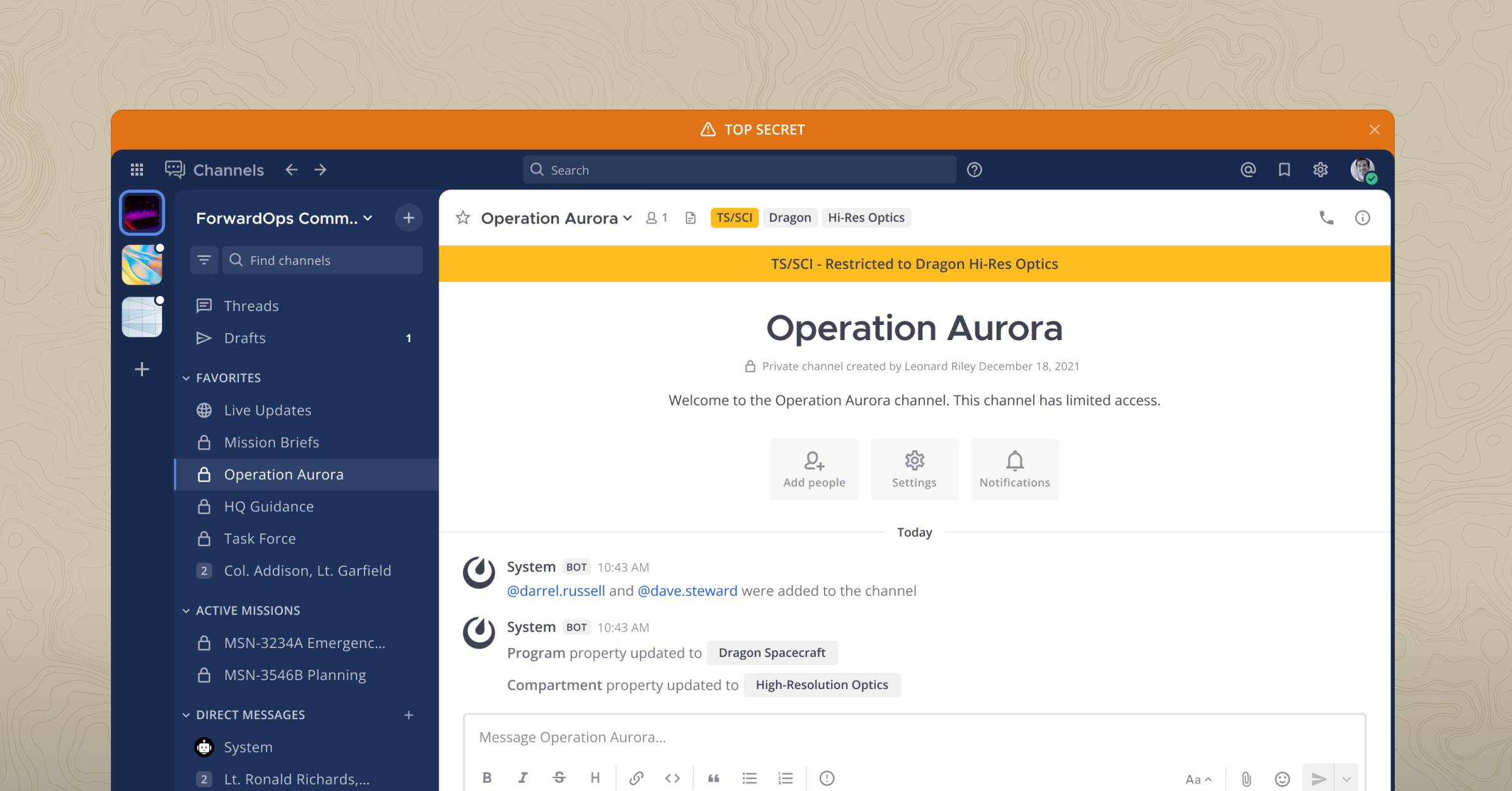
Everything you need to know about data sovereignty
In today’s digital age, the most effective organizations are using data to fuel innovation and accelerate business strategies. Data continues to be at the heart of business growth. Organizations increasingly rely on technology to manage and store their data. Questions about ownership, control, and security have emerged — leading to the rise of a concept known as data sovereignty.
In this post we’ll explore:
- What is data sovereignty?
- Why it matters to your organization
- Common challenges of data sovereignty
- How to include data sovereignty into your strategy and operations
What is data sovereignty?
Data sovereignty centers around the idea that individuals and organizations should have control over managing and storing their data. This is particularly relevant in an increasingly globalized digital world, where data often crosses international borders.
In the aftermath of laws like the General Data Protection Regulation (GDPR) and the California Consumer Privacy Act (CCPA), organizations are increasingly focused on ensuring that the sensitive data they possess is stored in a secure, compliant manner.
Benefits of data sovereignty
Organizations across all sectors of the economy — including government, technology, healthcare, and financial services — are increasingly prioritizing data sovereignty initiatives due to the myriad benefits that come with it.
Ensuring regulatory compliance
First and foremost, data sovereignty empowers organizations to maintain compliance with local and international data regulations. By storing data within proper jurisdictions, companies can adhere to specific data protection laws and industry standards. Not only does this minimize legal risks and establish a reputation for responsible data handling, it also helps companies avoid hefty fines. Organizations found guilty of violating the GDPR, for example, can face fines of up to €20 million or 4% of annual global turnover, whichever is greater.
Improving security
Data sovereignty helps organizations improve their security posture by reducing the exposure of sensitive information to external threats. Local data storage allows tighter control over access, encryption, and security measures. What’s more, organizations that prioritize data sovereignty can tailor their defenses to match regional cybersecurity challenges, diminishing the risks associated with cross-border data transfers and the complexities of different legal frameworks.
Strengthening privacy protections
Data sovereignty enables organizations to enhance privacy for users and clients. Keeping data within relevant jurisdictions gives teams better oversight into data flows, which limits the chances of unauthorized access and costly data breaches; according to IBM’s 2023 Cost of a Data Breach Report, the average breach sets organizations back a whopping $4.45 million, a 15% uptick over the last three years. By prioritizing data sovereignty, organizations can protect against costly breaches and even future-proof their infrastructure against them.
Accelerating incident response
Data sovereignty facilitates faster incident response by enabling organizations to concentrate their resources within a single jurisdiction instead of spreading them out all over the world. In the event of a breach of security incident — rather, when one inevitably occurs — response teams can take rapid action without having to navigate complex international legal procedures. This swift response helps mitigate potential risks and minimizes damages done by hackers, limiting the impact of each incident.
Securing customer trust
Embracing data sovereignty demonstrates a commitment to safeguarding customer data. When end users know their information is stored within proper jurisdictions, they are more likely to trust an organization with their sensitive data. This trust strengthens customer relationships and enhances a brand’s reputation.
Enabling data portability
Data sovereignty supports data portability initiatives by giving organizations greater control over their information. When data is stored within a specific geographic jurisdiction, it’s much easier for users and organizations to request, transfer, and manage their personal data according to their own preferences. This promotes transparency, empowers users, and aligns with emerging data privacy frameworks.
Supporting safe and secure AI experimentation
While everyone is racing to deploy artificial intelligence, organizations need to be sure to do it in a safe and secure manner. By ensuring all data is confined within a specific jurisdiction, organizations can adhere to ethical guidelines and comply with regulatory frameworks while ensuring their data stays private and secure. The more control organizations have over their environments and their data, the easier it is to ensure sensitive data stays protected when experimenting with AI.
Plus, data sovereignty also makes it easier for developers, researchers, and data scientists to collaborate productively within a localized ecosystem. This promotes responsible AI development by minimizing the risk of unintentional misuse of data and preventing data leakage across international borders.
What are the challenges of data sovereignty?
The benefits of data sovereignty speak for themselves. But data sovereignty is not without its challenges. We’ll examine some of the more pressing ones in this section.
Regulatory compliance
Navigating diverse and evolving data protection regulations across multiple jurisdictions is a significant challenge. On one hand, organizations need to invest considerable resources to understand various legal requirements and ensure they are adhering to them. On the other, the political landscape is constantly evolving; shifts in international relations can introduce additional complications around data sovereignty regulations. The unpredictable nature of the legal system can disrupt long-term data management strategies and create compliance challenges.
Data security risks
While data sovereignty aims to enhance your security posture, local storage doesn’t make any company immune from cyber threats. Storing all of your data in one location may be a risk as bad actors can target their efforts precisely. However, storing your data across multiple locations also has risks. One location may have weaker security controls than data centers in other locations. These and other factors need to be considered when reviewing data security risks.
Data localization costs
For international organizations, establishing and maintaining data centers in multiple jurisdictions can be prohibitively costly. When organizations have to maintain several data centers, their infrastructure, maintenance, and compliance costs add up, potentially causing a strain on resources. Even so, since data sovereignty helps protect against data breaches and compliance violations, such investments are worthwhile.
Impact on data accessibility
Data sovereignty can make it more difficult to share data across international borders, which could make it harder to collaborate effectively. Storing data within a single jurisdiction may create barriers for global teams, collaborations, and cross-border initiatives, limiting the potential for innovation and knowledge exchange.
Limitations on analytics and AI initiatives
By impacting data accessibility, data sovereignty can also hamper the potential of data-driven initiatives, including analytics and AI projects. Centralizing data might restrict access to the diverse data sets needed to train robust AI models and conduct comprehensive data analytics work.
Several steps you can take to overcome these challenges include:
- Understanding local law
- Rigorous strategic planning
- Implementing cybersecurity measures
- Maintaining regulatory documentation and developments
Data sovereignty: Best practices
Thinking about prioritizing data sovereignty at your organization? Follow these best practices to ensure that your data sovereignty initiative pays off — and that you adhere to all relevant regulations while keeping your data secure.
1. Conduct a thorough regulatory assessment
Start your data sovereignty project by conducting a comprehensive evaluation of all data protection regulations that apply to your organization. Understand the nuances of each region’s laws and tailor your strategy accordingly. Make sure your team stays on top of any potential developments in the legal sphere to keep current with all relevant regulations.
2. Organize your data
Classify data based on sensitivity, purpose, and legal requirements. Clearly label data to ensure it’s handled appropriately and is stored in the right place. While you’re at it, consider embracing data minimization and only collecting and storing the data you need. Not only does this make data sovereignty easier to achieve, it also reduces data storage and management costs.
3. Document policies and procedures
The more time you spend documenting data sovereignty policies and procedures, the easier it will be for the entire organization to stay aligned on this effort. For example, all employees should know the company’s cross-border data transfer protocols so that the organization maintains compliance in the event it needs to share data internationally.
4. Implement robust security mechanisms
The more secure your computing infrastructure is, the safer your data will be. By ensuring your data is encrypted at rest and in transit and implementing strict access controls based on roles and permissions, you can limit the likelihood that bad actors infiltrate your network and expose your sensitive data.
5. Monitor and audit infrastructure
No matter how secure your network is, bad actors may still be able to penetrate it. That being the case, make sure your team regularly monitors data handling processes, access controls, security measures, and your network to make sure everything is secure. Conduct internal audits and assessments to identify and address potential compliance gaps should you find any.
6. Train your team
If you want to make the most out of your data sovereignty efforts, you need employee buy-in. Educate employees about the importance of data sovereignty, as well as relevant privacy regulations and security practices, to ensure everyone understands why the organization needs to prioritize compliance and data security. If employees don’t know why data sovereignty matters, don’t be surprised if your efforts fall short.
Now that you have a solid understanding of what data sovereignty is and why it matters, it’s time to continue learning about data management. When you’re ready, find out what data portability is and why businesses should care about it.




